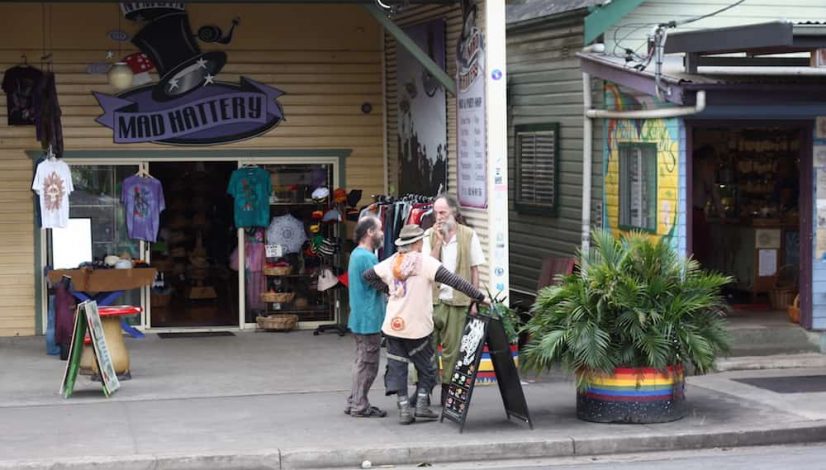Nimbin, Australia is the Home of MardiGrass and The Hemp Olympics, But Weed is Still Illegal
The streets of Nimbin are lined with people with dreadlocks and rainbow clothing, weed leaves decorate the shop fronts, and bud smoke fills the air. On corners, in parks, and in cafes everyone’s blazing up—all of whom, the law states, are criminals. Hippies arrived in Nimbin, Australia, in the state of New South Wales, in 1973 for the Aquarius festival and never left. They bought up the butter factory, a bunch of buildings in town and set up communes, intent on settling in. Over the following decades, whilst the rest of the world played their hand at the Monopoly board of Neoliberal Capitalism, the hippies worked on forming community, chasing dreams and sharing joints.
The hub of bud in Nimbin is the Hemp Embassy, where you can get every bit of weed merchandise you can imagine —everything but the weed. Consultation on the medicinal benefits of cannabis is part of the service here and patients talk candidly about their need for relief. Here I meet Michael Balderstone, Hemp Embassy President and full-on weed enthusiast. He’s been in Nimbin for a few decades and is now one of the spiritual fathers of the town. He is succinct in his description of what binds the town: “We’ve got common ground, we’ve all had mushrooms, acid, seen the bigger picture. Can’t be fucked with the other world.”
“The more you hassle weed, everyone goes to the pub and gets pissed and takes pills.”
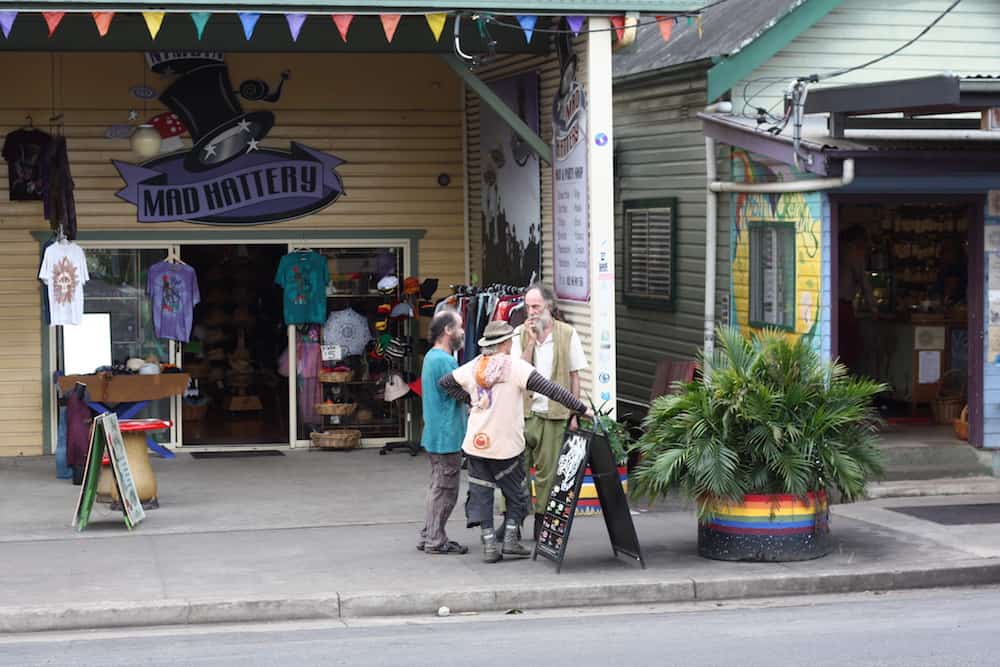
Craig Ballinger/ High Times
Weed has long been part of the Nimbin story, it’s part of the identity of the town and the reason tourists flock here like its a rural Amsterdam. Hemp and its magical cousin are taken seriously here – Nimbin is also the epicenter of cannabis law reform in Australia. Their yearly festival, MardiGrass, started in 1993 as a protest and a show of civil disobedience. In the introduction to the Pot Papers, the 2018 MardiGrass programme, Michael describes “a season of particularly aggressive helicopter raids” as the tipping point.
2018 has just seen the 26th MardiGrass, a three-day festival of music, protest, celebration, and education. It’s easy to forget that weed is still entirely illegal, and despite improvements in relations with the police, legal battles persist. This year MardiGrass was affected by police introduction of roadside drug testing. The cops came in from the capital to test their new toys—saliva testing kits and roadside labs. They’re testing for presence—not impairment—and the testing is random, so you can get pulled over at any point, regardless of how you’re driving. Fail two tests and you’re banned from driving for 24 hours, which would leave you pretty well stranded.
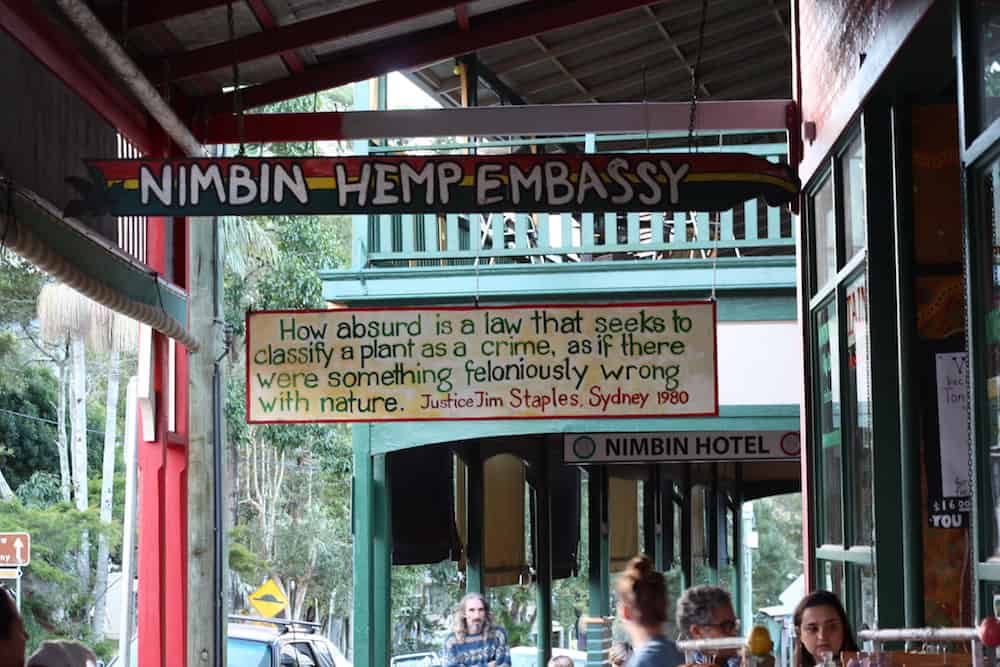
Craig Ballinger/ High Times
There’s a particularly ominous TV ad that does nothing to dispel the idea from Nimbin folk that the police are a punitive force above all else. These initiatives come from Sydney, where they know if they can shake Nimbin down in order to see good results, though the general rapport with local police is good. Local cops tend to, after a bit of time in town, understand the delicate balance of the place — they understand that, according to Michael, “the more you hassle weed, everyone goes to the pub and gets pissed and takes pills, [crystal meth].”
Like most places, dangerous drugs are a problem in Nimbin. The problem was exacerbated in 2016, though, when a police sting (using a secret camera in a palm tree) took out the town’s traditional dealers. The “Lane Boys”, mainly the grown-up children of the old hippie settlers, were rounded up for dealing in the infamous Rainbow Lane. In the center of town, just next to the Nimbin Museum, you used to be able to get a good deal under no pressure—to the point of a choice of strain and use of scales. Now, if you don’t know the place, it’s the usual rushed rip-off deal—bags, not weights.
“Nimbin’s strength is its community; the fuckin’ nuclear family idea is a disaster, I reckon. It’s capitalism.”
The Lane Boys are now either in jail or banned from the town. Dealers are still everywhere in Nimbin, and generally they’re the people you might not want to buy a bag off in any city—guys high on everything but weed, often addicts involved in messy bigger pictures. In 2013 a fire claimed the Nimbin Museum, a unique wonderland that entirely encapsulated and celebrated the creativity and chaos of the stoned mind. Balderstone blames the fire on people drunkards or people on “ice” (crystal meth) but rejects local conspiracy theories of police involvement.
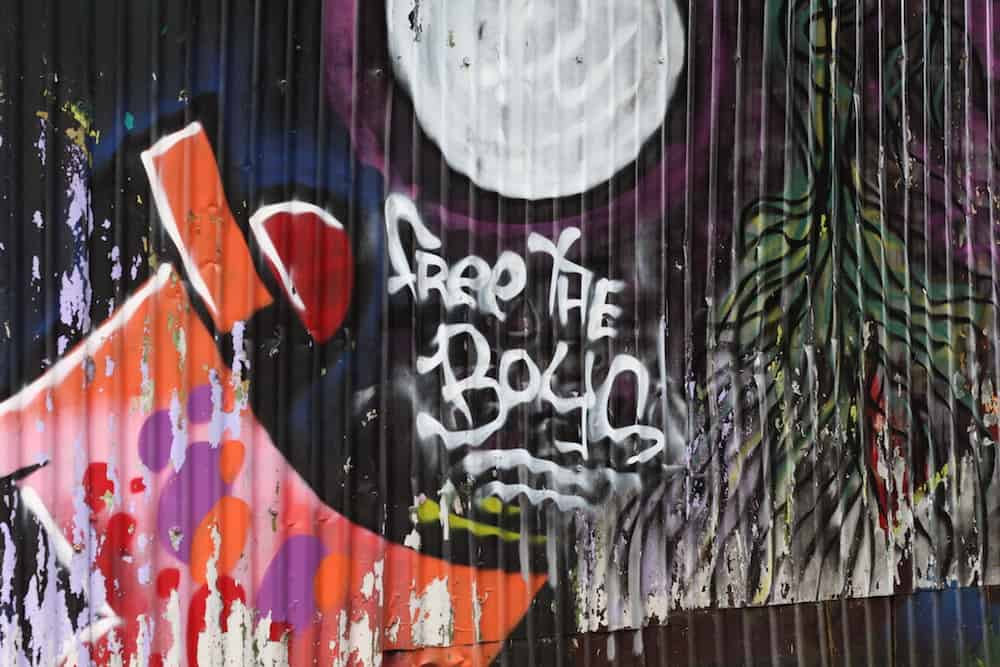
Craig Ballinger/ High Times
With the museum and the neighboring Rainbow Café gone, there’s a gap at the top of Rainbow Lane. The more the town is “cleaned up”, the more ideas of medicinal marijuana become mainstream, and the more people from the city see Nimbin as an investment opportunity. There are plans to rebuild the café, but the investment is coming from out of town, meaning that the investors have to understand a complex, delicate ecosystem.
This is an extremely beautiful part of the world, set in lush mountains, abundant with life. Balderstone tells me the value of real estate has doubled here in the last 8 years. A local shopkeeper named Kylie at the Green Bank tells me she’s keen to see what happens in the next five years. She worries about the announcement of five new housing developments, about the commodification of their community. A town based on peace, love, and weed is always going to run into trouble, especially if you create a uniquely caring, welcoming, and tolerant community.
The Police station in town now has nine officers and a live link to CCTV covering most of the main street, though the real existential threat only really emanates from the outside. I talk to another of the town’s fathers about the depth of the saliva testing, and I see we’re in the mix of the inescapable Drug War again. The road to reform is long and challenging — prohibition is a profitable business, and medical cannabis even more so. The ultimate goal, legal recreational use, seem laughably idealistic.
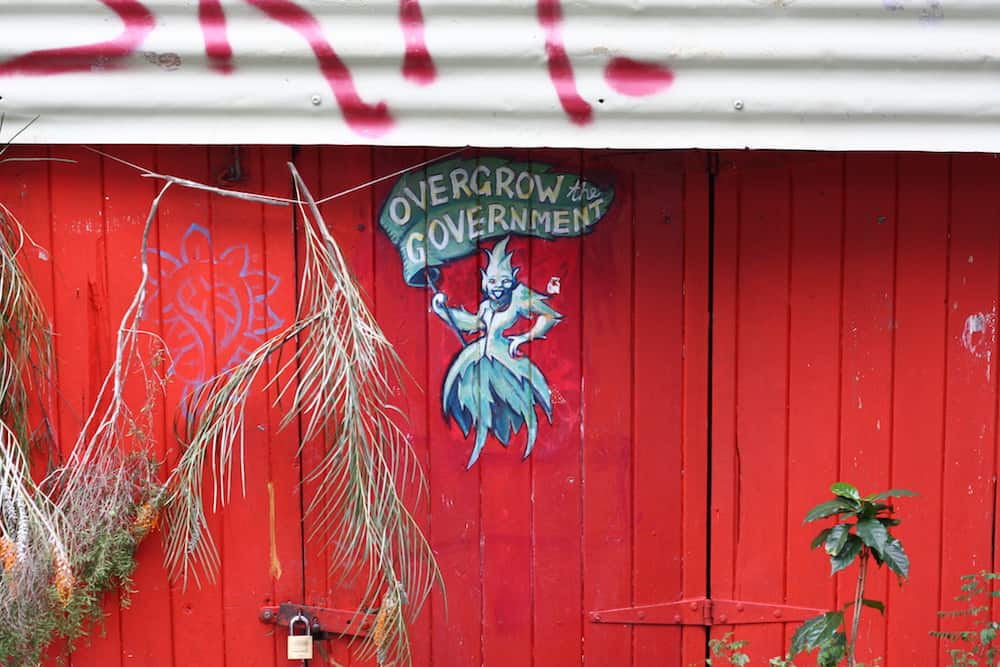
Craig Ballinger/ High Times
Despite this Nimbin persists, a weed smoker’s paradise and a beacon of hope. A home not only to weed but to permaculture initiatives, environmental activism, and green power—all the while acting as an open hospital to those in need of alternative medicine. Michael Balderstone sees the whole picture: “Nimbin’s strength is its community; the fuckin’ nuclear family idea is a disaster, I reckon. It’s capitalism. Putting families against each other, fighting to make money, a big Monopoly game… loneliness is raging, suicides are raging. It never happened when people had tribes and communities. Nimbin’s community is holding on. Prohibition has probably created it a little bit because we’re all outsiders, all criminals. We band together.”
The post Nimbin, Australia is the Home of MardiGrass and The Hemp Olympics, But Weed is Still Illegal appeared first on High Times.

